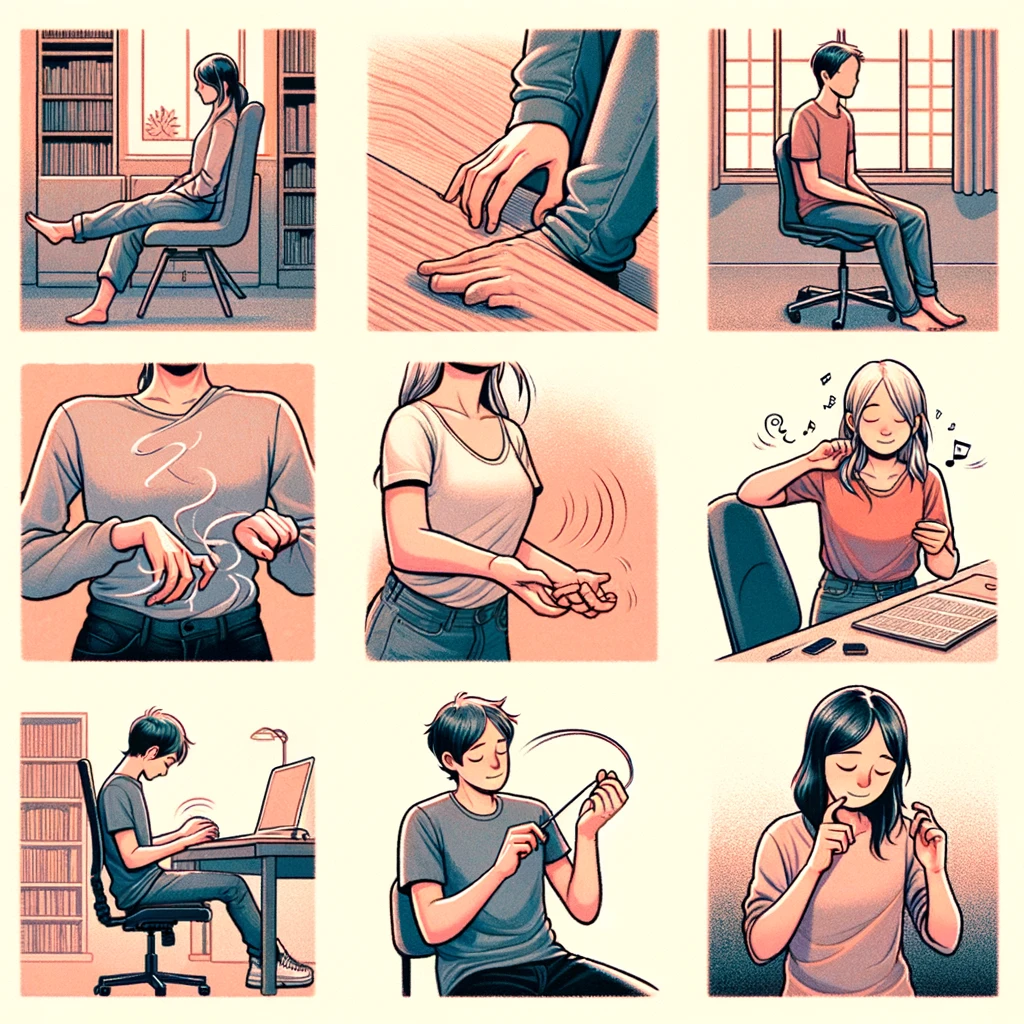Overcoming ADHD Guilt: 5 Steps to Heal and Move Forward
What is ADHD Guilt?
As a therapist specializing in ADHD women, I see guilt as one of the most common and challenging emotions they struggle with. Did you know that all emotions are there to help us? Guilt, for example, helps us make things right when we've done something wrong. But when we're taught incorrect beliefs about ourselves and the world, these emotional signals can get crossed, making us feel guilty when we shouldn't.
The Connection Between ADHD and Guilt
As children, adults with ADHD were often taught false beliefs about their worth. They were told they should achieve the same as their neurotypical peers and think the same way, leading them to feel like something is wrong with them. These beliefs create guilt, self-criticism, and self-judgment because they weren’t raised in a world that supports neurodiversity. ADHD symptoms like forgetfulness, impulsivity, and time management struggles often lead to feelings of guilt. This guilt can also be triggered by criticism, judgment, or making mistakes, and is closely linked with shame and rejection sensitivity dysphoria. For example, missing an important deadline or forgetting a loved one's birthday can result in regret, guilt, and self-blame. Even someone being angry at you can trigger these feelings. It's important to remember that these reactions are symptoms of a neurodevelopmental condition, not personal failings. The guilt you feel is often a result of being criticized for your brain-based differences.
📌 TL;DR Summary:
- Main Point 1: Women with ADHD often carry a heavy burden of guilt, stemming from unmet societal expectations and the challenges their neurodivergent brains face. This guilt is not a reflection of their worth, but rather a symptom of living in a world that doesn't fully embrace neurodiversity.
- Main Point 2: The effects of guilt can be both physical and mental, leading to increased stress, lower self-esteem, and even making women more vulnerable to abusive relationships. Guilt can manifest as a continuous cycle of negative emotions, further compounding feelings of inadequacy.
- Main Point 3: Healing from guilt is possible through self-compassion, recognizing the true sources of guilt, and aligning one's actions with personal values rather than external expectations. Understanding that guilt is often misplaced can help break the cycle and foster emotional resilience.
What are the Sources of Guilt for ADHD Women?
What do ADHD women feel guilty about? In my office, women often express guilt over various issues, most of which stem from their ADHD:- Missed Deadlines and Commitments:
- Difficulty with Organization:
- Emotional Regulation:
- Social Interactions:
- Parental Guilt:
- Masking and Conforming:
- Self-Care Neglect:
- Workplace Challenges:
How Does Guilt Affect ADHD Women?
The physical and mental effects of feeling guilt in people with ADHD can be significant. Physically, guilt can lead to increased stress levels, which can negatively affect the body. This includes elevated heart rate, increased blood pressure, and tense muscles. The constant state of guilt can also disrupt sleep patterns, leading to fatigue and a weakened immune system. Additionally, ADHD women may experience migraine, IBS, fibromyalgia, and other physical symptoms that are related to issues like chronic guilt. For ADHD women, guilt and self-esteem are closely connected. Feeling guilty about not meeting expectations or making mistakes can lower self-esteem, especially if this guilt is constant. When self-esteem is low, it can make guilt feel even worse. However, being kind to yourself and understanding that everyone makes mistakes can help reduce guilt and protect your self-esteem. The cycle of guilt can be exhausting and demoralizing. It can lead to anxiety and self-doubt and even drive ADHDers to self-sabotaging behaviors or use harmful coping mechanisms to alleviate the guilt temporarily. This, in turn, can further perpetuate the guilt and create a never-ending loop of negative emotions and behaviors. Guilt makes you prone to abusive relationships. You can feel like you did things wrong when you haven't; others can exploit this if they choose! They can call you lazy or accuse you of doing things you haven't done; they can withdraw affection and manipulate you by triggering your rejection sensitivity. This is what makes so many ADHD women prone to emotionally abusive partners and workplaces. People pleasing and apologizing are also behaviors that are common and related to fear of experiencing guilt in ADHD women.Five Things to Do Right Now to Help with ADHD Guilt
- Identify Your Values: Clarify what truly matters to you and align your actions with these values. This can help you see if your guilt is self-imposed or due to unrealistic external expectations.
- Evaluate the Source: Consider where the guilt is coming from. Is it based on your values, or do outside pressures influence it?
- Examine the Purpose: Ask yourself if guilt is helpful. If it encourages you to avoid harmful behaviors, it has value. If not, it’s time to let it go.
- Make Amends: If your actions have hurt others or gone against your values, take steps to make them right. Then, forgive yourself and release the guilt.
- Practice Self-Compassion: Be kind to yourself. Understand that everyone makes mistakes, and it’s okay to be imperfect.
The Power of Self-Compassion for Guilt
Self-compassion is a powerful tool for managing guilt. It is a radical self-care act involving treating yourself with the same kindness and understanding you would offer a friend. Here are a few ways to practice self-compassion:- Self-Compassion Break: Take a moment to acknowledge your feelings and remind yourself that everyone experiences challenges.
- Self-Compassion Journal: Write about your experiences from a place of self-compassion, focusing on understanding rather than judgment.
- How Would You Treat a Friend?: Consider how you would respond to a friend in a similar situation. Often, we are much kinder to others than we are to ourselves.
Does Medication Help with ADHD and Guilt?
While medications can help manage emotional regulation, they may not directly address feelings of guilt. However, by reducing ADHD symptoms, medications can potentially decrease situations that might trigger guilt. It's essential to consult with a healthcare professional for personalized advice.How to Support a Loved One with ADHD Who Is Experiencing Guilt
Supporting a loved one with ADHD who is dealing with guilt requires understanding, empathy, and patience. Here are some simple strategies:-
- 🗣️👂 Listen Actively: Let them share their feelings without interrupting or judging. This helps them feel heard and understood.
- 🤝💬 Validate Their Feelings: Acknowledge their guilt without dismissing it. Validation shows you respect their emotions.
- 💖🤗 Encourage Self-Compassion: Remind them to treat themselves with the same kindness they would offer a friend, helping them be less harsh on themselves.
- ❓🤲 Ask What They Need: Respect their choice if they just want support rather than advice.
- 🧠💼 Suggest Professional Help: If their feelings of guilt are ongoing or cause significant distress, encourage them to seek help from a mental health professional. Therapists who specialize in ADHD treatment for women can provide support with depression, self-acceptance, teaching boundaries, and developing coping strategies, including mindfulness techniques, to address issues rooted in childhood. Therapy can also help them learn to love and accept their ADHD brain, which is at the core of releasing some of that guilt.
You Can Heal from Guilt

Medical Disclaimer
The information provided in this content is for general informational purposes only and is not intended as a substitute for professional medical advice, diagnosis, or treatment. Always seek the advice of your physician or other qualified health provider with any questions you may have regarding a medical condition. Never disregard professional medical advice or delay in seeking it because of something you have read or heard in this content. Reliance on any information provided is solely at your own risk.





